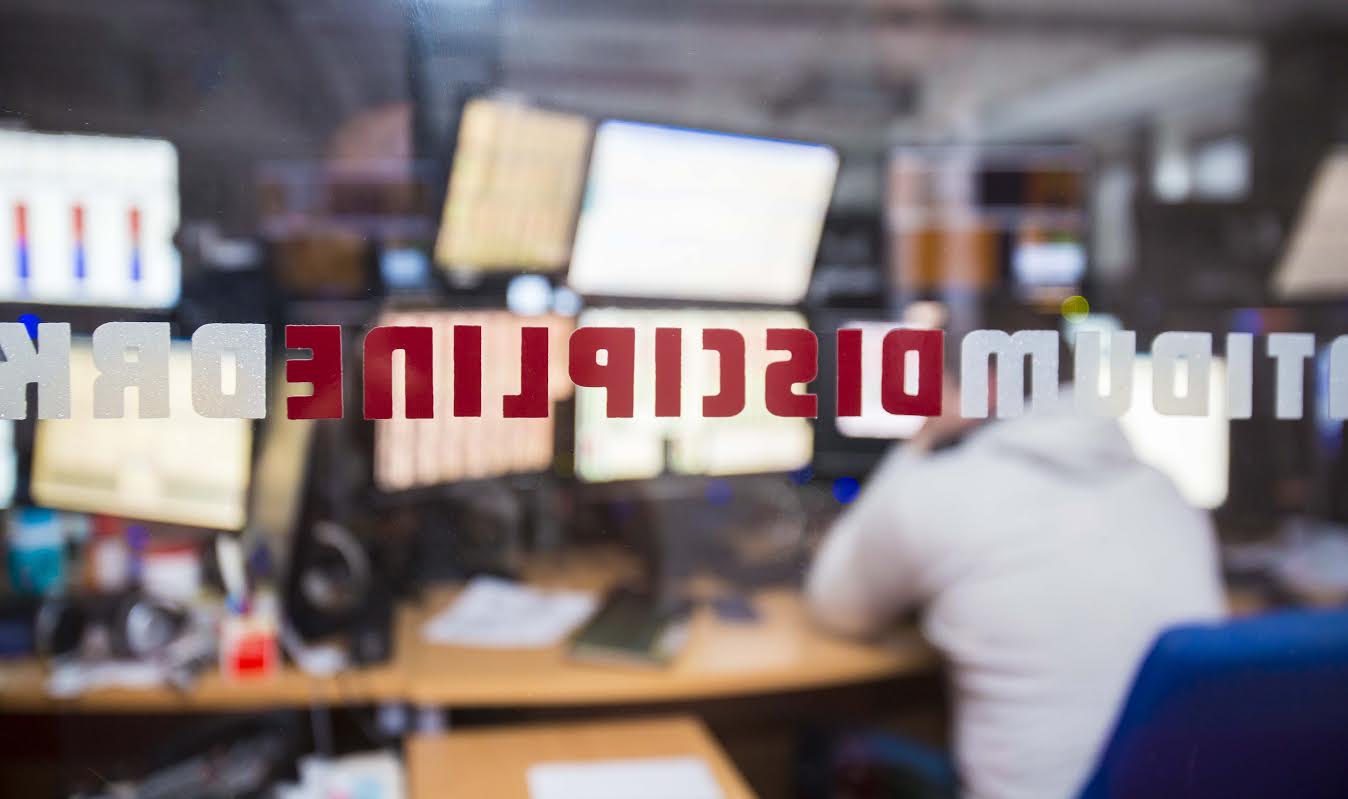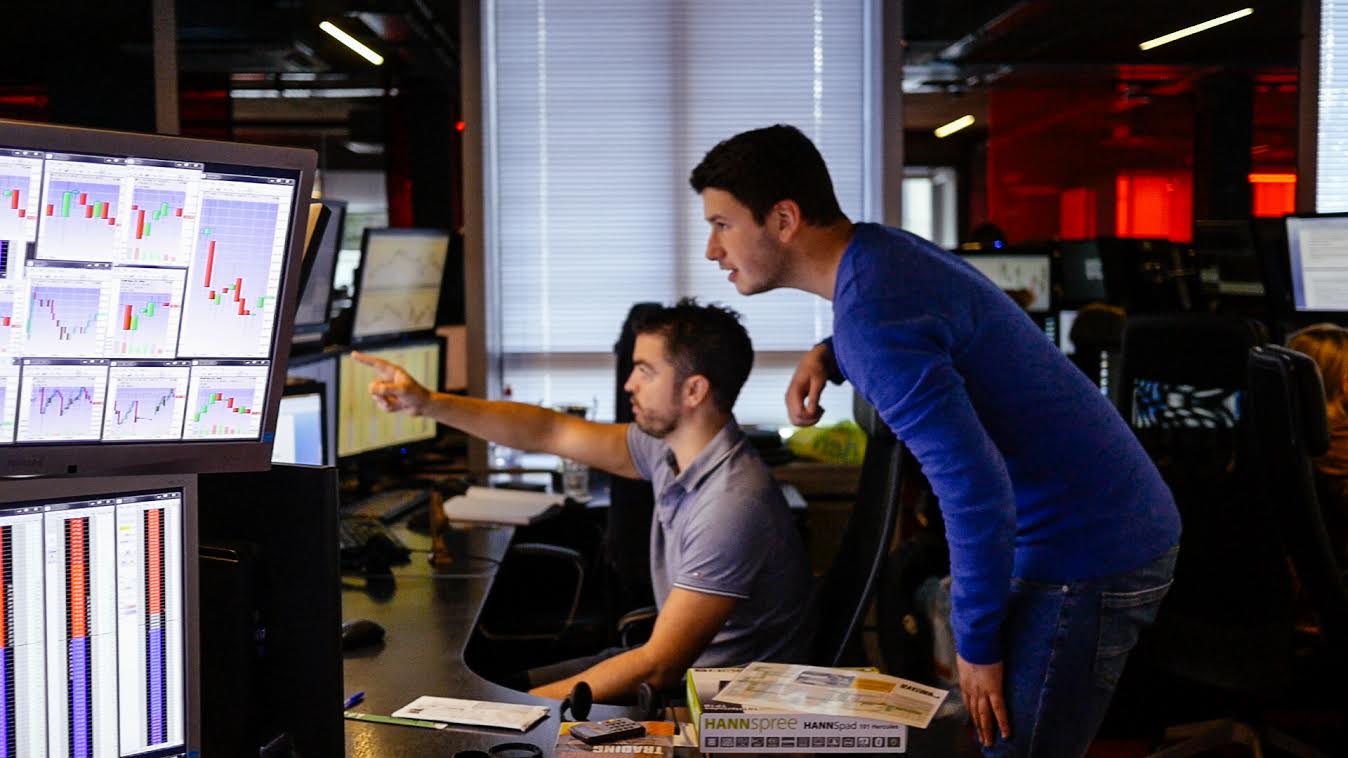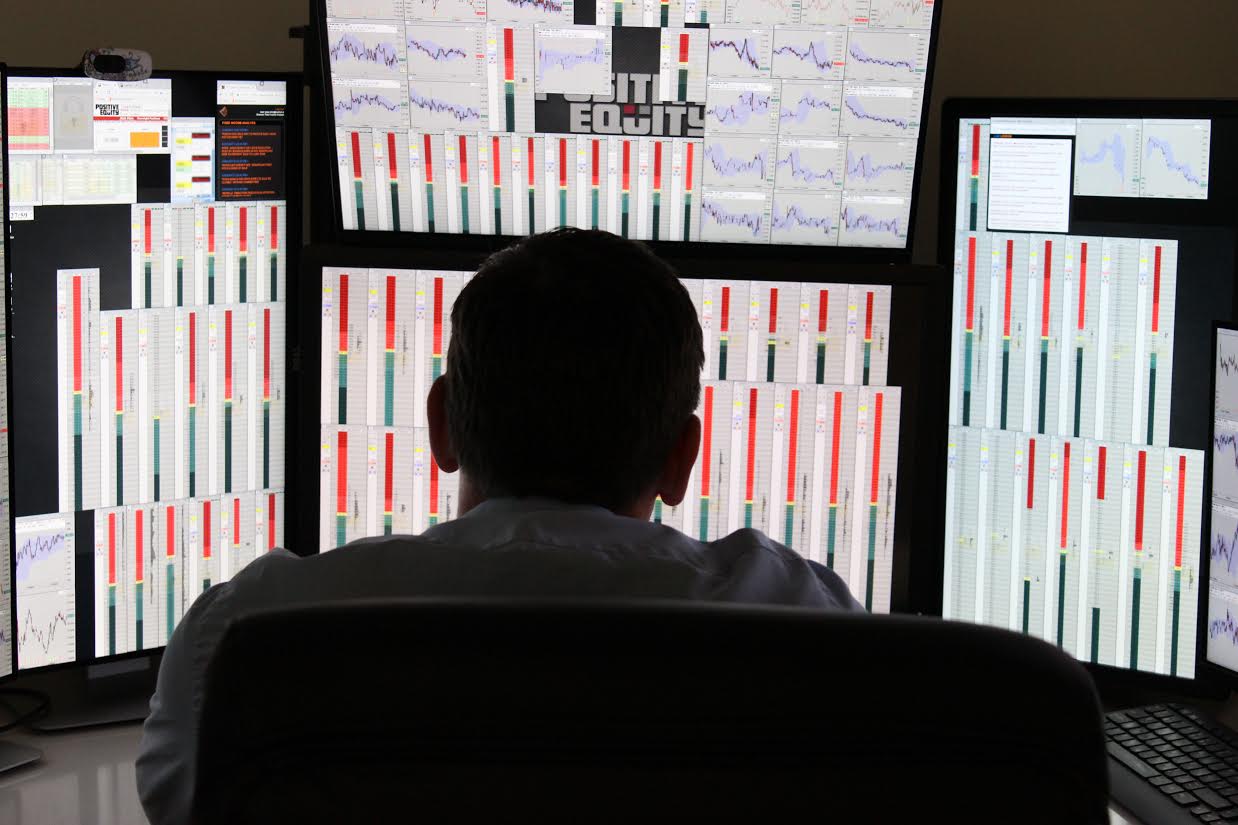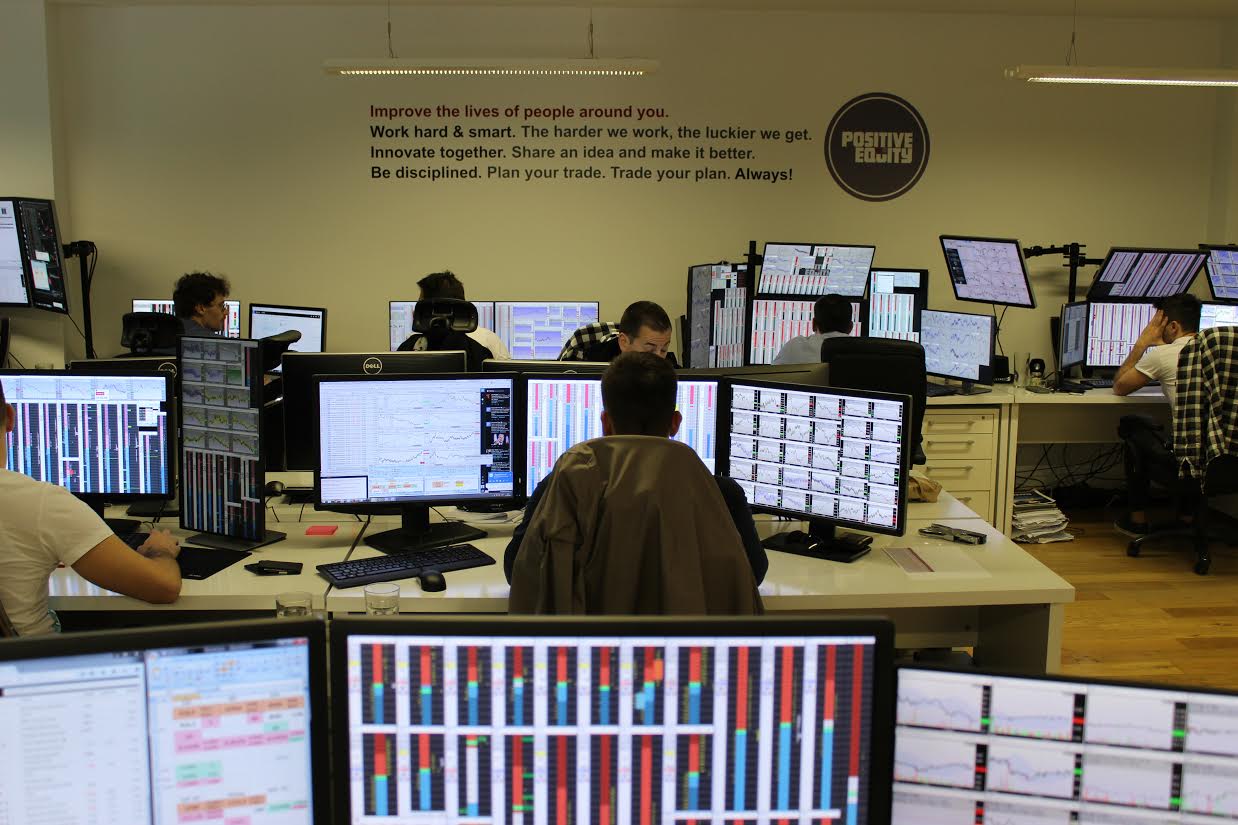13 Persons Who Carried Inappropriate Banner in Split Suburb Identified
ZAGREB, April 14, 2020 - Charges have been pressed against four persons for attacking journalists in Split on Sunday, and 13 persons who carried an inappropriate banner have been identified, Interior Minister Davor Božinović said in an interview with the public broadcaster HRT on Monday evening.
A female journalist and a camerawoman were attacked outside a parish church in the Sirobuja suburb of Split on Sunday where a Mass was held despite the ban on public gatherings over the coronavirus epidemic. Criminal charges have been brought against three persons for using violence against persons performing a public duty, which carries a maximum prison sentence of five years, while one person faces misdemeanour charges for disturbing the peace.
Police have also identified 13 persons, including a minor, who subsequently gathered outside the church and displayed unacceptable behaviour and insignia, Božinović said. Two of them will be prosecuted under the Public Order Act, one under the Explosive Substances Act for setting off a flare, while the rest will be reported to the State Inspectorate for violating the measures imposed by the national civil protection authority as part of efforts to curb the coronavirus epidemic.
"There will be no concessions made, especially when it comes to officials and journalists, who are actually one of the most important links in the chain of defence against the coronavirus. Without them everything that the civil protection authority says would not reach the citizens, and we can see that a vast majority of citizens adhere to these measures to protect themselves and others," the minister said.
Asked about a possible relaxation of the emergency measures, Božinović said that there were still a lot of unknowns about this novel virus and that it was difficult to predict when the measures would be eased. He said that the number of infections would need to fall for five to seven days, while this number in Croatia was still fluctuating. He said that it was not yet time to lift the restrictions.
"We discuss this every day, and this is not an arbitrary decision of the government and the civil protection authority. If we all make our contribution and behave in accordance with the epidemiological measures, we will sooner reach a point where it will be possible to relax some of the measures," Božinović said.
He said that 23 police officers were currently infected with the virus, 210 had completed self-isolation and 123 were still in self-isolation.
More coronavirus news can be found in the Lifestyle section.
VIDEO: Hajduk Begins Training at Poljud Under Specific Conditions
April 14, 2020 - Football is back! Well, almost. Hajduk Split returns to a much quieter Poljud to train under strict conditions.
Namely, Hajduk began training on Monday on the main and auxiliary grounds of Poljud. Training sessions are organized throughout the day.
Hajduk footballers have been given permission to train individually, i.e., without physical contact with other players and other people in general, as recommended by the Headquarters. The training is done by appointment, with two players training at the same time, one on the main pitch and one on Poljud's auxiliary grounds. Afterward, the players must go home because they are not allowed to shower at the stadium after training.
"The players will come to Poljud at different times and each player is alone on the field during training, which is in accordance with the instructions of the Civil Protection Headquarters," the club revealed.
The training is mainly about developing endurance and strength.
"This is how the Hajduk will train all week, and further activities will be organized in accordance with the latest instructions of the Civil Protection Headquarters," added Hajduk.
Recall, the Executive Board of the Croatian Football Federation has adopted changes to the competition calendar in the 1st and 2nd Croatian League and Croatian Cup, taking into account the current COVID-19 pandemic.
According to the recommendation of UEFA, the Croatian Football Federation (HNS) management has considered all the options in the calendar to allow a successful end to the competition year. Considering that the further course of the coronavirus pandemic is unpredictable, the HNS Executive Board has adopted three calendar options for the Croatian First League, Second League, and Croatian Cup competitions.
HNS has been in communication with the Central State Office for Sport on this subject, which is aware of and agrees with the decisions cited here.
Depending on the epidemiological situation in Croatia and the decisions of the competent authorities, the Executive Board will, by a specific decision, determine which version of the competition calendar change will apply.
In addition, the Olympic Committee has set deadlines by which it will announce a possibly selected version of the decision:
Option 1
1st HNL Competition Starts: May 16, 2020
2nd HNL Competition Starts: May 23, 2020
Completion of the 1st HNL and 2nd HNL Competition: July 18, 2020
Deadline: April 20, 2020
Option 2
1st HNL and 2nd HNL Competition Starts: May 30, 2020
Completion of the 1st HNL and 2nd HNL Competition: July 25, 2020
Deadline: May 4, 2020
Option 3
1st HNL and 2nd HNL Competition Starts: June 13, 2020
Completion of the 1st HNL Competition: August 2, 2020
Completion of 2nd HNL Competition: 1st August 2020
Deadline: May 18, 2020
Before the Croatian First League was interrupted because of the coronavirus pandemic, Hajduk was in fourth place with 45 points, behind Lokomotiva (46), Rijeka (47) and Dinamo (65).
To read more about sport in Croatia, follow TCN's dedicated page.
Charges Pressed Over Assault on Journalists in Split
ZAGREB, April 13, 2020 - Split police have pressed criminal charges against three men who assaulted a female journalist and a camerawoman on Sunday as they were trying to record Easter Mass in a local church, held despite a ban on gatherings because of COVID-19, as well as a misdemeanour charge against a 70-year-old man.
A report on the incident has been sent to the State Inspectorate, the Split-Dalmatia County civil protection authority and the Split-Makarska Archdiocese, the county police said in a press release on Monday.
Four men have been criminally investigated in connection with the assault on the female journalist in the church in the Sirobuje suburb and a subsequent disturbance of the peace and prevention of journalists from doing a public service.
The county police said the journalist sustained light injuries in the attack.
More news about the Catholic Church in Croatia can be found in the Politics section.
Dealing with COVID-19: Small Tourist Business Stories from Split
April 13, 2020 - How are small tourism businesses dealing with COVID-19 in Croatia? TCN's UNESCO correspondent on the changing realities in the two tourism businesses in Split which feed her.
It’s hard to say anything that’s not already all over the news about this unprecedented situation happening worldwide. In essence, we all follow the daily press conferences and updates on numbers of COVID-19. One thing is for sure, this Spring did not start the way any of us planned. We are all mostly working from home if we are working at all, limiting our social interactions, and avoiding leaving the house if not necessary.
This piece will look at the changes happening for two small businesses working in tourism in Split. Maybe not all similar companies are going through the same issues, but it might speak for most of them as we all face sadly the same problems. I work as a hotel manager of a small city centre hotel, and I’m the owner of a small tourist agency focusing mostly on food and wine tours. I need to admit my daily business motivation is changing almost daily in the last few weeks, and most of my work is dealing with cancellations and guests saying they can’t go on their long-planned vacation.
At the end of February, which seems like ages ago, I think most of Croatia, including me, didn’t take COVID-19 as seriously as we should have. In terms of work in tourism, I had isolated cases of canceled bookings, which were mostly for March. I even had hotel guests from Asia who were supposed to come to Split mid-March, and they asked if they would experience any racism in Split – I assured them this wouldn’t be the case. If they are ready to travel to Croatia, the hotel will be more than happy to welcome them. As you might assume, in the meantime, they needed to cancel cause all of their flights were canceled.
In the first week of March, when it comes to bookings and reservations, nothing seemed to indicate that things would escalate, or at least it seemed to be something happening far away from Split. Also, just a few cancellations, nothing more than usual. The second week of March brought a more serious approach on global and local levels. COVID-19 was declared a pandemic, and there was mandatory self-isolation proclaimed for numerous countries. From the side of the hotel business, we mostly had cancellations for the whole of March and several for April. The tourist agency had cancellations for the entire April and May – literally the entire preseason was down the drain.
The third and fourth week was just something that we all expected – almost the whole of April canceled; 30 % of May reservations withdrew, with more and more clients canceling summer dates. Luckily there were some rebookings, and that’s a small light of optimism in a sea of canceled reservations and mails starting with “We are sorry to inform you but due to the COVID-19 situation we need to cancel our reservation…” All tourism and hospitality businesses have experienced this situation in the past month.
After the first state of shock and fear due to health reasons, shock and fear transferred to the fact we are facing losing not only preseason but potentially the whole summer season, not to mention all the economic impacts on tourism and other industries. Tourism businesses are already suffering from the economic effects of COVID-19 on our lives. With pandemic dynamics and the fact there is no vaccine or cure, this is something that only logical to happen. In this situation, not many would want to travel, and if they would go somewhere, they can’t do it due to travel restrictions – I had a case of few optimistic clients, but this got canceled too. If we assume, we flatten the curve, some restrictions will be milder or removed, but people will still be cautious. At this moment, the majority of clients who had reservations till the end of June are rebooking their accommodation and tours for autumn or next year.
All this doesn’t sound like the summer we are used to having here in Split, and any other tourist destination has the same issues. Also, it’s not something we can influence or know when it will be over. As a business in this situation, we can’t do a lot, but a few things a small tourist business can do are the following:
- • Adapt your business to a new situation – work with all precautions and safety measures
- • Offer clients a flexible cancellation policy or rebooking
- • Prepare the prices and promotions for summer months and postseason - by some predictions this could be the time when we could expect fewer travel restrictions
- • Be ready to offer discounts and change price strategy
- • Be present but not aggressive with marketing as this is not the time to sell vacation
- • Be kind and understand clients and answer quickly to inquiries
- • Be in touch with partners agents and hotels – they are going through the same stressful situation
- • Analyse your current business situation and project your future cash flow and income
- • Keep your staff if you can and be honest with them about the situation
- • Apply for state-supported or other measures that could help your business
When this is over, inevitably, there will be people willing to go on vacation, and with some preparation now, we could attract them first to the destination and then to our business. Tourism, although it is the first to be affected by negative impacts it will be the first back on its feet – now we need to deal with preserving our health as well as the health of our families. As everything this will be over at some point – we need to keep sane, safe, and follow the instructions we have from health officials.
If you would like to dream a little about your next Split holiday, here is what Filipa's agency specialises in.
For more on being prepared for the post-corona reality, Zoran Pejovic of Paradox Hospitality has written an excellent series for TCN.
Expats in Isolation Top 10 Croatia Experiences: Ionut from Romania in Split
April 12, 2020 - As people look for escape from the mental stress brought on by the corona crisis, a new series on TCN with local expats in isolation, looking back at their top 10 experiences in Croatia so far. We start with Ionut Copoiu from Romania in Split.
I have had a LOT of emails and messages asking if TCN could write about something happier than the constant corona updates. I hear your pain, but with so much (sadly bad) news to report and limited resources due to the crisis, this is not so easy. But then I thought of a nice series which might perhaps pique people's interests, focus on the happy stuff, and even unearth some hidden gems to explore at a later date.
Having done a very successful series with over 30 submissions from expats around the world on their self-isolation experiences in Croatia compared to what is happening in their home country, and then following that with a series on Croats in the diaspora with their corona viewpoint of their country of residence compared to the Homeland, perhaps a happier and more interesting series would be to look at expats here today and their top 10 experiences in Croatia so far.
We start in Split with Ionut Copiou from Romania, who has been here for 5 years now, running his own business making nautical jewellery with his wife, Mirela.
Here is Ionut's top 10. If would like to contribute to this series, contact us on This email address is being protected from spambots. You need JavaScript enabled to view it. Subject Top 10.
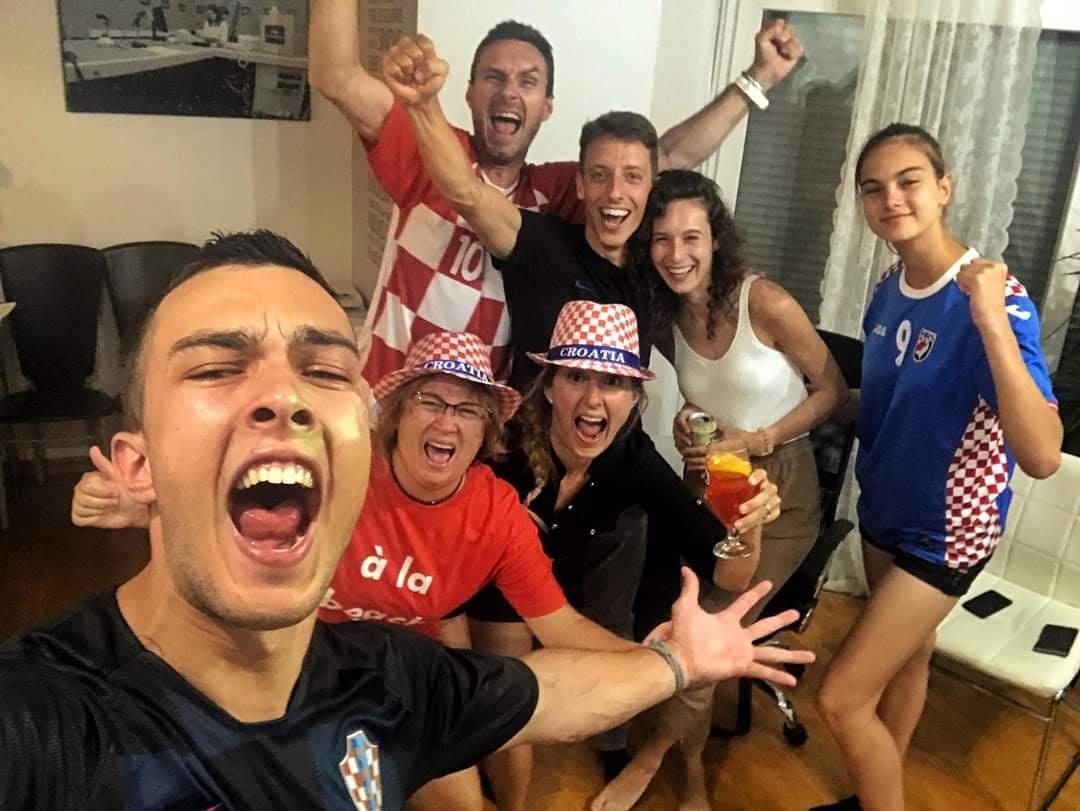
Living in Croatia during the 2018 World Cup is at the top of my list. Watching most of the games in the middle of the town surrounded by hundreds of Croatians and tourists and celebrating after each game in the streets - priceless! The game against England in the semi-final is still giving me goose-bumps.
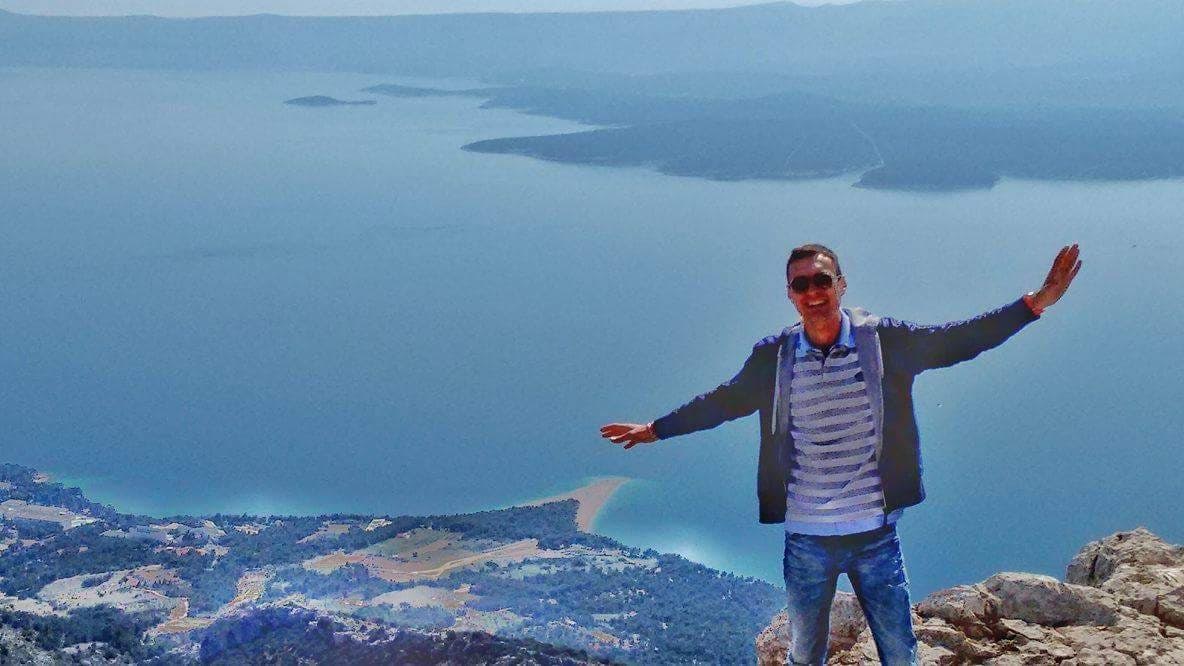
Visiting for the first Vidova Gora viewing point on the island of Brac was a breath-taking experience. The 180 degrees views of the blue waters of the Adriatic Sea and the islands gave me a feeling of being on top of the world.
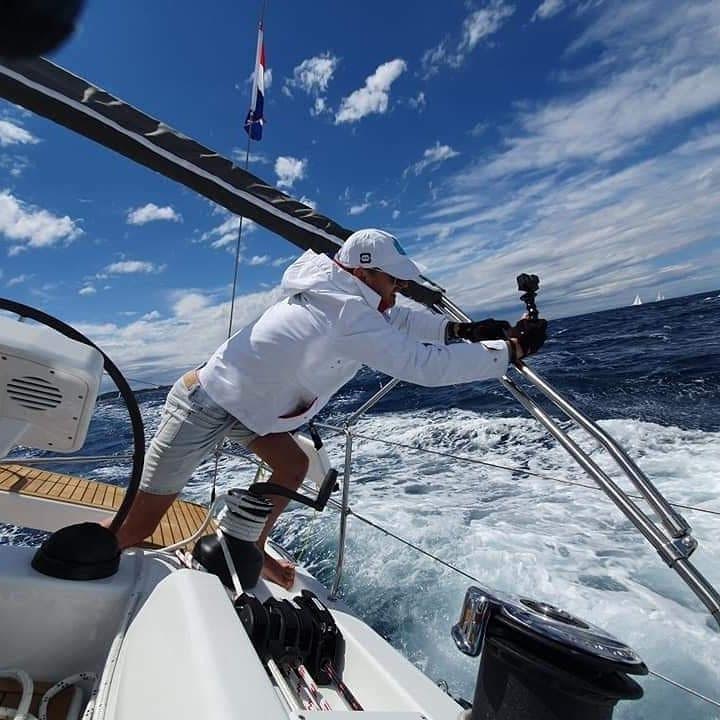
Being able to participate in regattas and experience sailing by competing with others while spending 5 days with good friends on a yacht.
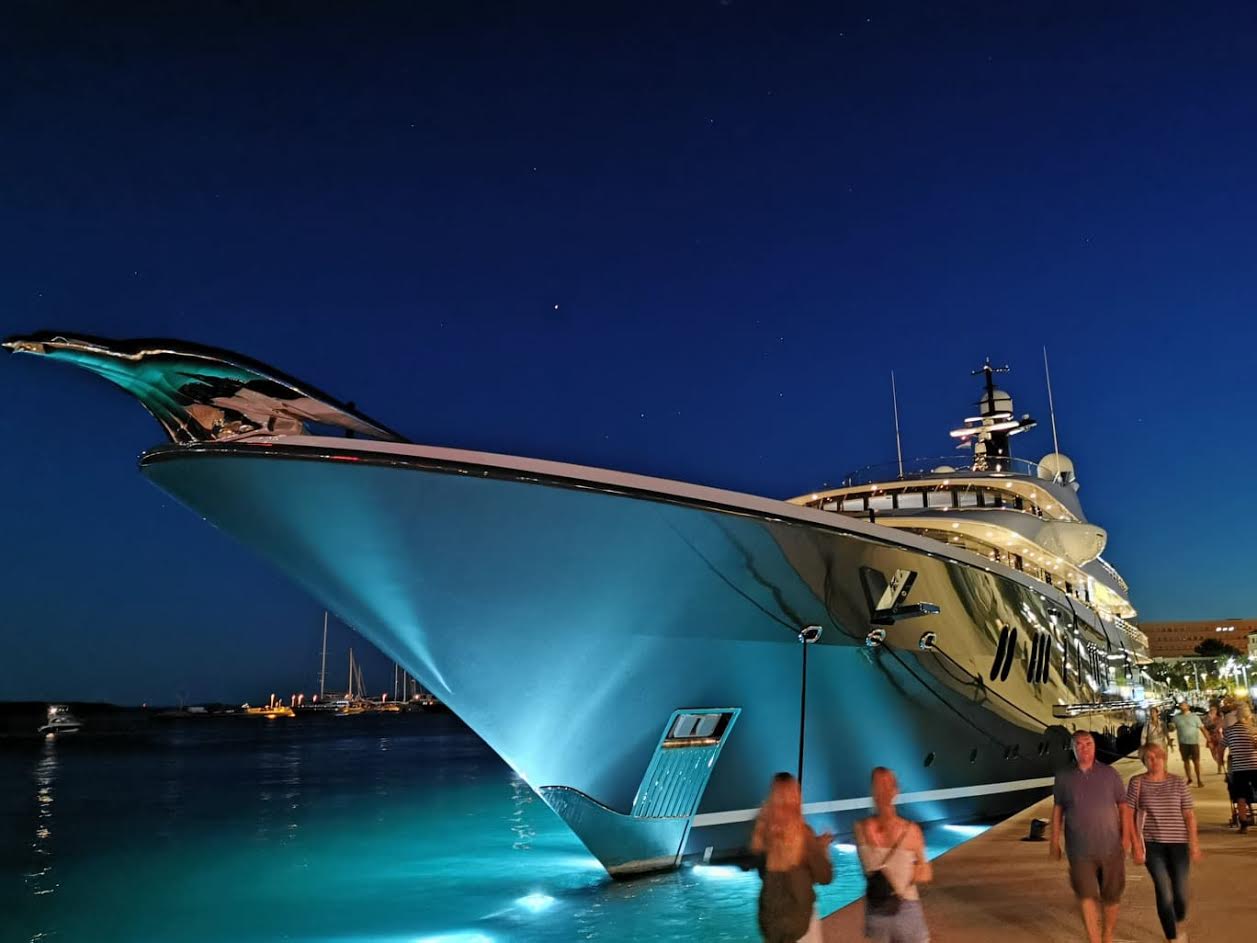
Exploring the west promenade of Split during the season and admiring luxury superyachts while having an ice-cold beer 10 meters away.
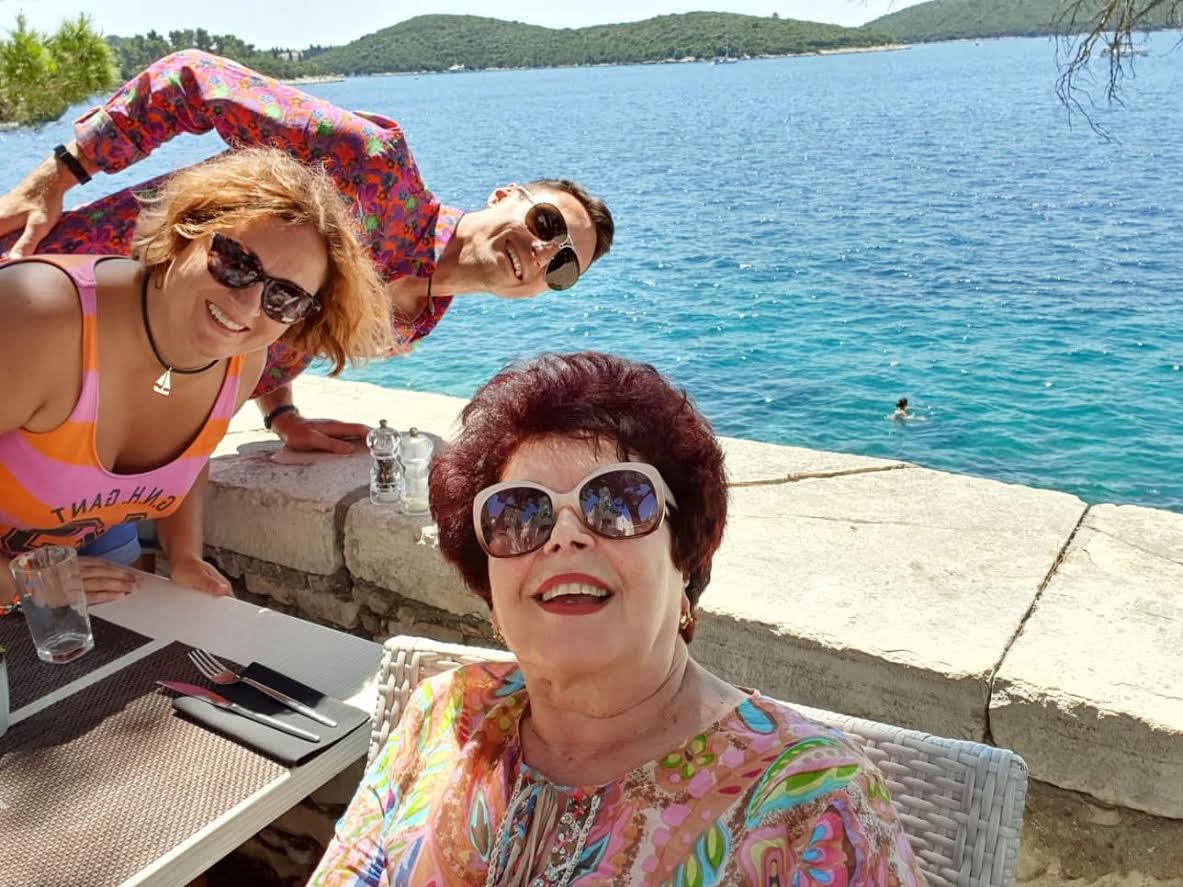
Bringing my parents over every year and build new memories is compensating for the fact that we now live 1500km away.
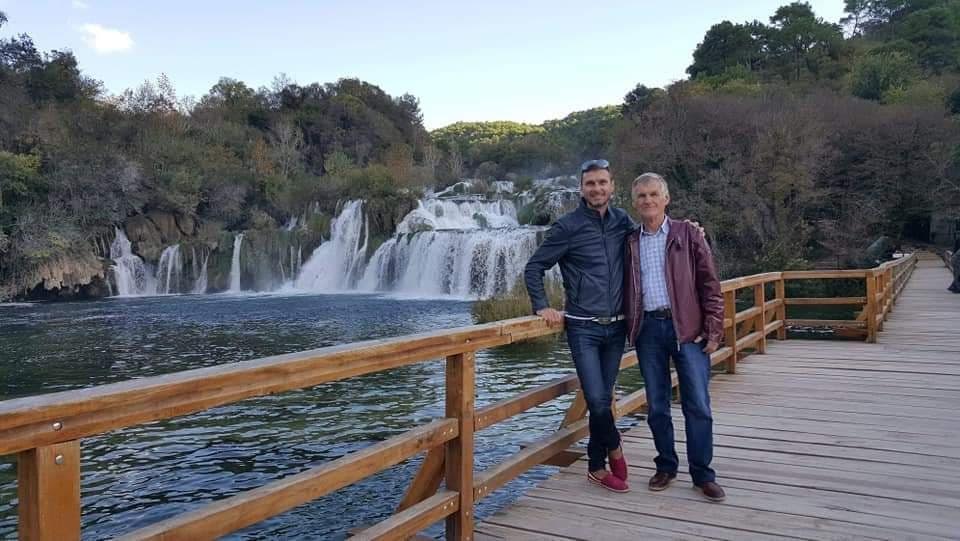
Waking up in the morning and having the possibility to jump on a yacht for a one-day sail and forget about work and current problems.
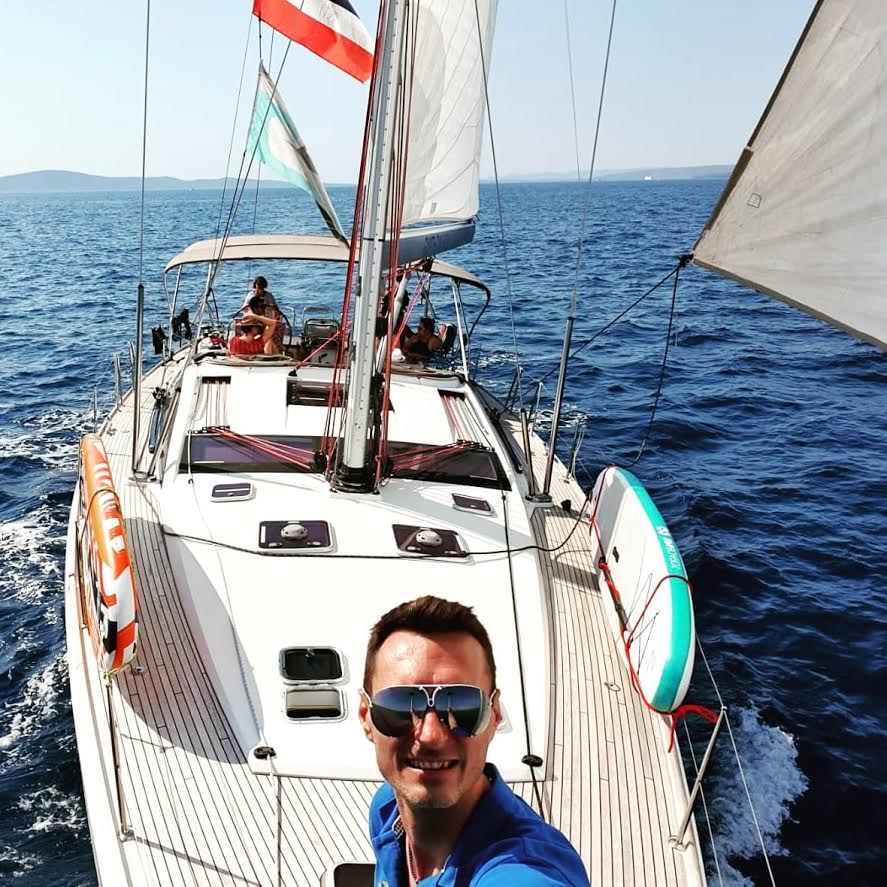
Celebrating New Year’s Eve in the old town of Split in the middle of the day each year, with artificial snow and music and all our friends.

Trips to Dubrovnik have always been a joy. One of the most beautiful coastal roads to get there from Split and once you are there, the Walls are every time very impressive.
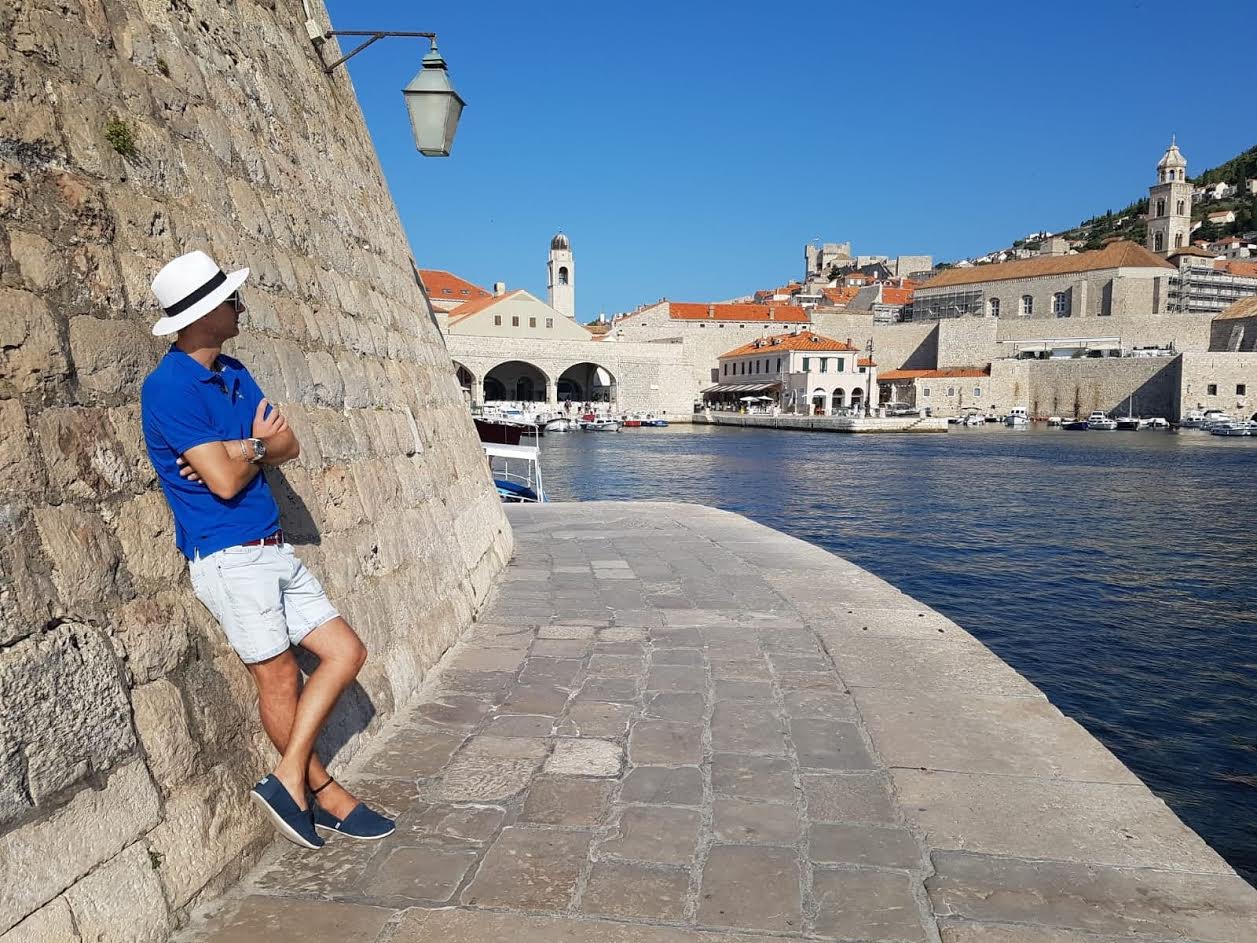
Being able to live in such a beautiful town like Split and walking almost every day in Diocletian’s Palace which is more 1700 years old...wow!
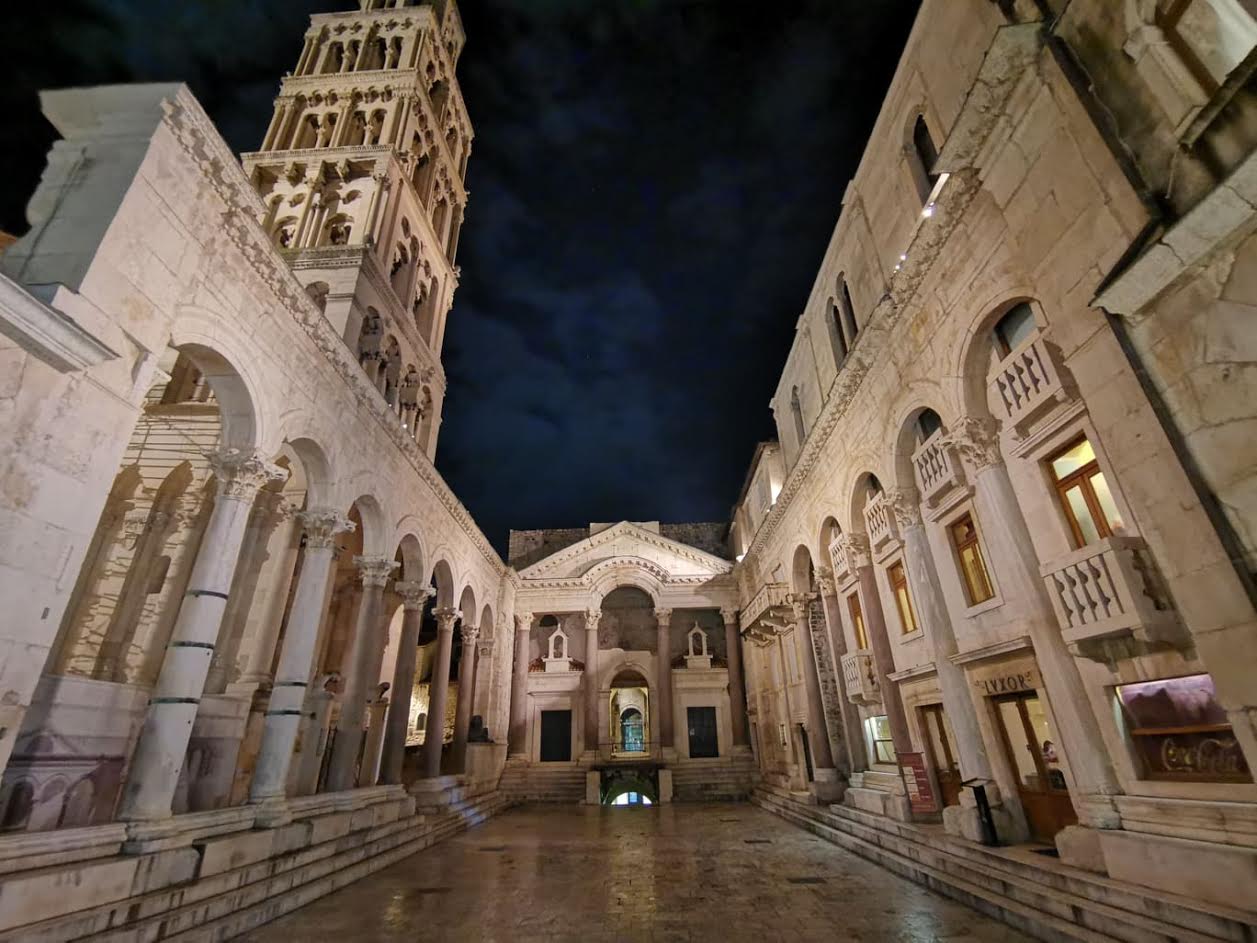
Seeing random people all over wearing the bracelets I make is still bringing me the same joy and excitement although is more than 4 years since this keeps happening. I hope it will never stop �
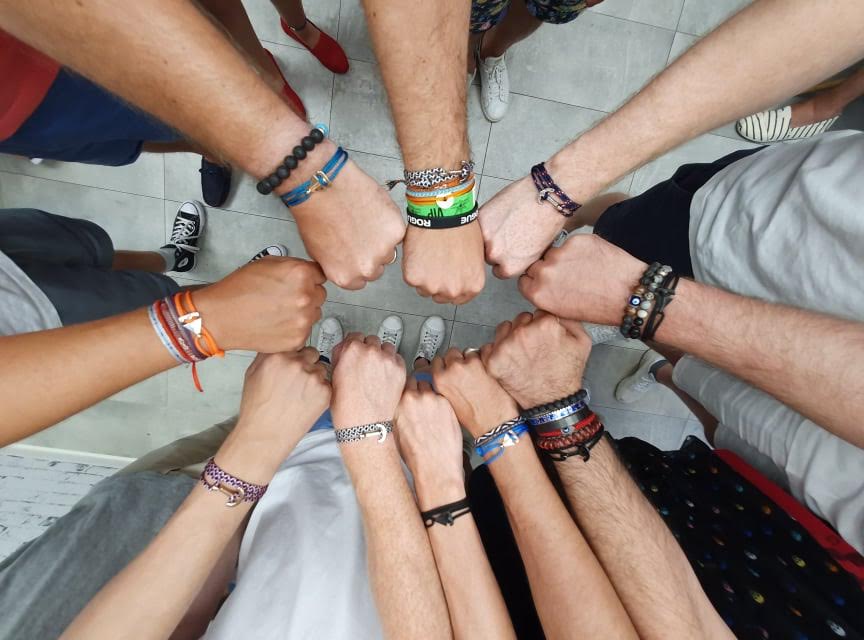
Thanks Ionut - it sounds like a fantastic life, and I am sure you will be back to it very soon when this madness is all over. If you would like to learn more about Ionut's fabulous nautical bracelets, visit his official website.
Are you an expat in Croatia with a little time on your hands and some fabulous memories and experiences to share? If you would like to participate in this series, please contact us at This email address is being protected from spambots. You need JavaScript enabled to view it. Subject Top 10.
To see the other stories in this series, as well as expat self-isolation stories compared to their home countries, and corona voices in the diaspora, visit the dedicated section.
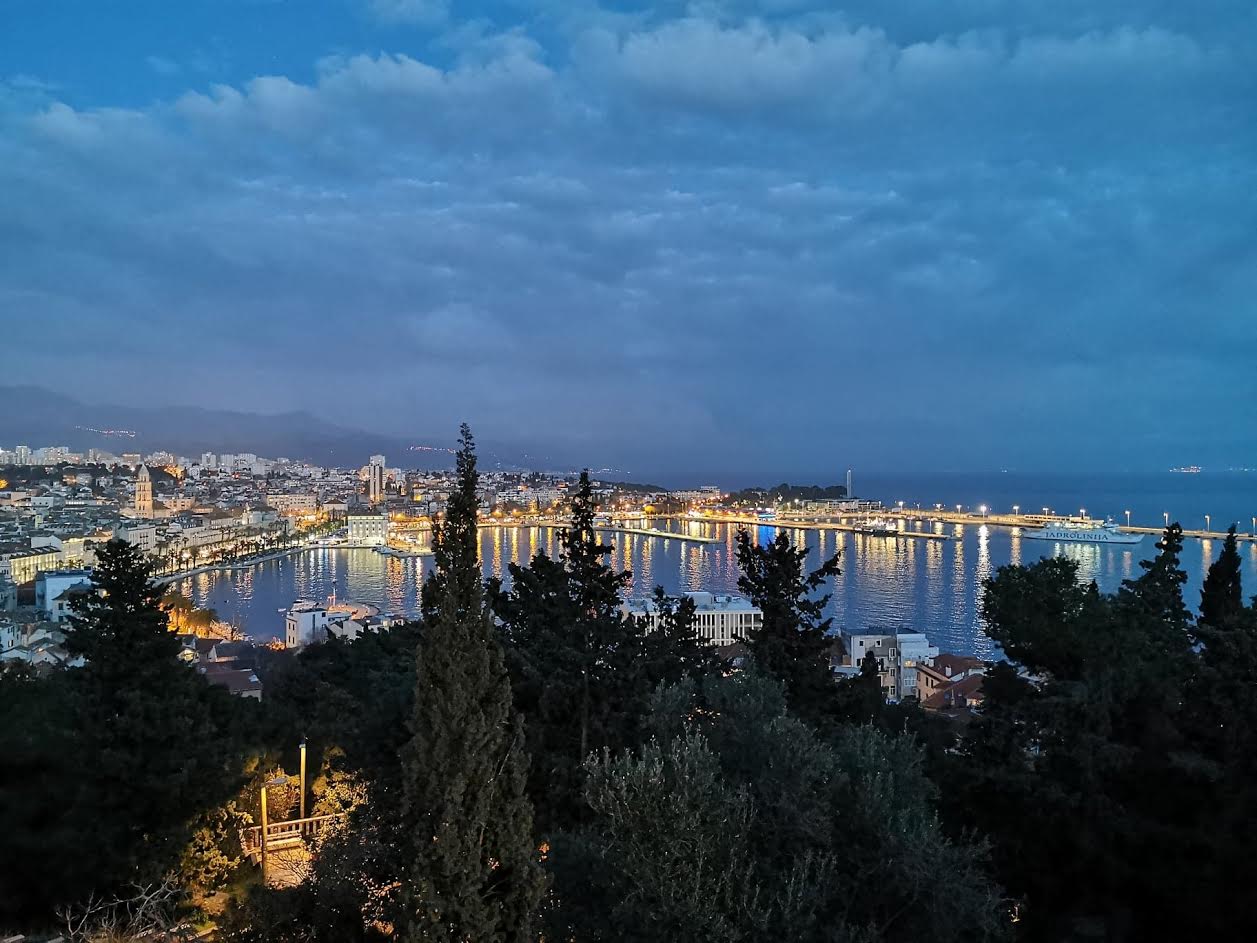
FIBA Confirms: Olympic Basketball Qualifying Tournament Moved to 2021 in Split
April 10, 2020 - The Executive Board of the International Basketball Federation (FIBA) has decided on the terms of the next three major tournaments. Thus, the Olympic qualifying tournament in Split has been moved to June 2021.
Gol.hr reports that the basketball qualification tournament for the Olympic Games will now be held in Split from June 22 and July 4, 2021, and the EuroBasket, which is due to be held next year, has been postponed for September 1 to 18, 2022, confirmed the Executive Board of the International Basketball Federation (FIBA) at Thursday’s meeting held via video conference.
"After a detailed analysis of all possible scenarios and following the recommendations of the Regional Offices and the Competition Commission, the FIBA Executive Board made the following changes to the calendar: Olympic Qualifying Tournaments for men will be played from 22 June to 4 July 2021 (the exact date is pending approval from the International Olympic Committee); FIBA EuroBasket 2021 and FIBA AmeriCup 2021 have been moved to 1 to 18 September 2022,” FIBA said in an official statement adding that the first two FIBA World Cup 2023 qualifying matches, which were to be played in September 2022, will be rescheduled in August, when the European and US national teams will prepare for EuroBasket and AmeriCup, while all other qualifying dates, including those for continental competitions, remain unchanged.
The FIBA Afrobasket (August 24 - September 5) and the FIBA Asia Cup (August 17-29) will be held next year, but will be shifted by one week to avoid overlapping dates with the Tokyo Olympics.
The FIBA EuroBasket for women’s basketball remained in the scheduled period from June 17 to 27, 2021, and in a similar period (June 20-27, 2021), the FIBA AmeriCup will be held. With four continental competitions, 16 teams will compete in the FIBA Women's World Cup Qualifying Tournament, scheduled for February 2022.
"All other senior competition dates scheduled between 2020 and 2023 remain unchanged," the statement said.
"I am very pleased that we have been able to conduct internal consultations and confirm changes to the competition calendar within two weeks of the IOC's announcement of a new Olympic Games date," FIBA Secretary General Andreas Zagklis said in a statement.
"The result is that the calendar of major FIBA events remains very attractive to our fans, with a balanced schedule of major tournaments and keeping in mind the well-being and availability of players. I look forward to the day when the basketball community will be able to return to the court again," Zagklis added.
"As for the EuroBasket to be played in September 2022 and its preparatory period - I think we can be pleased.
As the World Cup Qualifiers were moved into the preparation period of the European Championships, we certainly have a pool of players," said HKS President Stojko Vrankovic, who, among other things, was a FIBA Europe Board member and participated in conversations about calendar changes.
"There was talk that the Olympic Qualifying Tournaments would move to September this year, but my position was that, given the current situation with the pandemic, the economic situation that follows, and given the consequences of the earthquake in Zagreb, it would not be feasible. FIBA has looked at the overall situation, listened to many and decided to postpone these tournaments for next year."
The FIBA Executive Board continues to monitor the COVID-19 pandemic daily and assesses all options for the possible continuation of the competition once all the preconditions have been created.
To read more about sport in Croatia, follow TCN's dedicated page.
Riding the Stockmarket Corona Rollercoaster: A Trader's View from Split
April 9, 2020 - Nowhere has the corona rollercoaster been more volatile than on the stock markets. So how is life as a trader in the sunshine in the Dalmatian capital of Split, and who does all this compare to 2008 and 9/11?
The stock market is a brave place to be dabbling in right now with the global corona rollercoaster, but for some it is a way of life and full-time job. I am very grateful to Jason Berry of Positive Equity for finding the time to tell us how all this madness looks from the trading floor in self-isolation in Split.
Some people have nothing to do at the moment as they sit out this isolation, others have never worked harder. Which is it for you? Tell us about your day.
We haven’t been this busy since 2008. Our business is inversely correlated with the general market cycle. This means that when markets are up and the bulls are in charge, our daily grind is fairly moderate. But when fear takes over and the markets are tanking, we become exceptionally busy.
Our normal day takes part between 8 am and 10 pm. Each trader works some version of those hours. European markets open at 8am, most people at their desks 7:30, reading the news, catching up with what happened in Asia. The US markets and most major European markets are open until 10 pm. I work noon till 10 pm. They are long hours be we have lots of breaks in there, first a kava, lunch, gym, second kava, third kava, etc. it's hard work but its quite flexible in many ways. Well, that all changed when Covid-19 started to hit the markets.
I started staying up until midnight on Sundays to see the open of Asian markets and on 4 of the last Sundays stayed up working until 3-4 am, sleep, then back up for European open, trade for 3-4 more hours, nap around 10 am to noon, then back at it until 10 pm. It was insane. The markets just didn’t sit still. They have been the busiest I’ve seen them since 2008, and not in a good way. They say the markets go up the stairs, but down the elevator shaft.
We’re now only just starting to emerge from one of the busiest months of my career. We’re all exhausted.
On a more human level, our day has changed. We used to go out to lunch or eat at a café, now we order Wolt and get coffee in a plastic cup from a machine for 3 kuna. I’ve discovered a lot of tasty restaurants: Skatula for pulled pork sambos, Maka for sushi poke bowls, Cookie Lab for croissants and OJ. We see nobody. Most of us are isolated from our families. We have a number of international traders and they can’t see friends and live alone, that’s tough. I’m putting together an Easter basket for them.
We’re lucky in that we are only wrestling with the medical and psychological aspects of this crisis whereas other folks have the financial bomb lobbed in there as well. These are very strange times we live in.
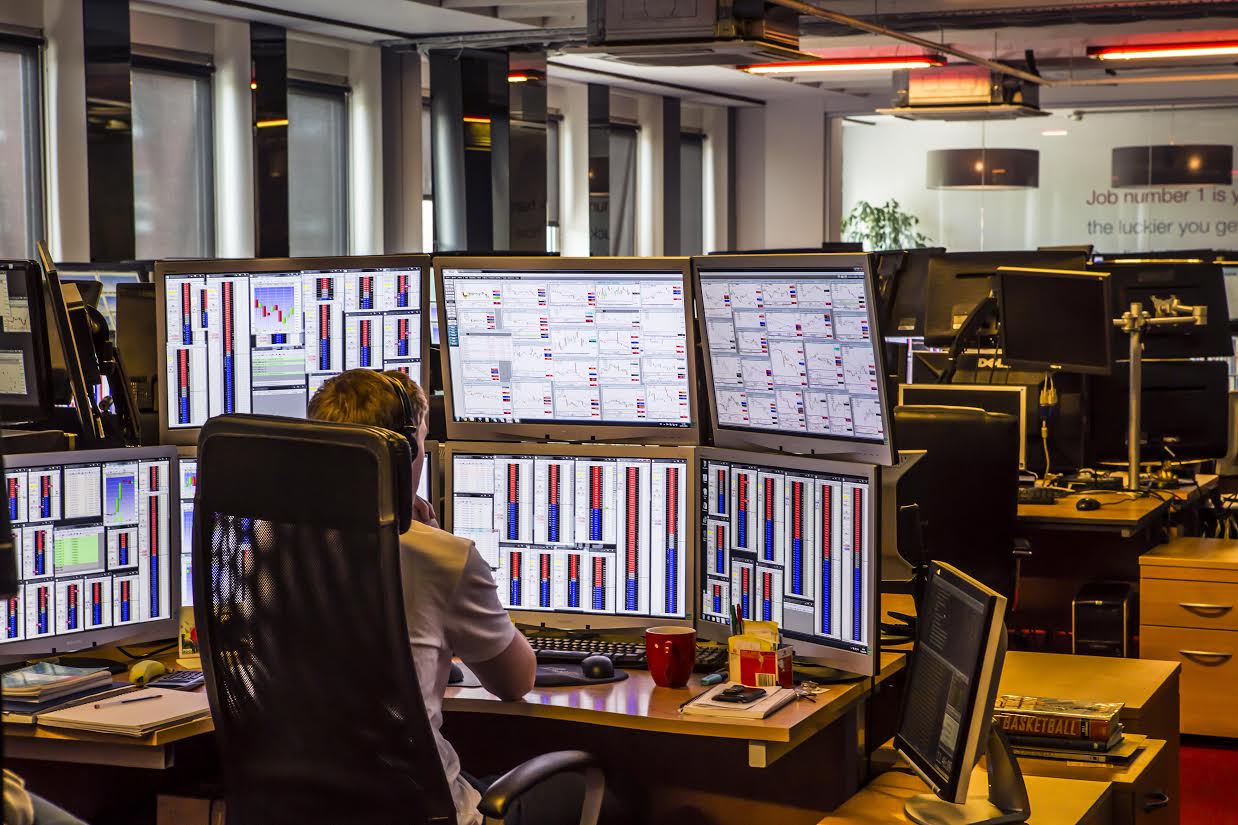
From your recent TCN interview for our expat self-isolation series, you said you picked up the corona threat very early. Give us the timeline from a trading point of view - when did things really start to affect the market.
Well, the virus arrived first in China. The China50 or top 50 stocks in China started getting smashed on January 21st. We watched for a week of carnage but after they put the quarantine into effect things stabilized and recovered a bit into February. We took note but it was still far away and not personal yet.
Then February 20 and 21st the virus spread to Europe, and Italy in particular, and we started seeing significant down moves in European indices and the US. This is when we started getting ideas that things were not OK, but still it somewhat controlled down moves. We made jokes in the office, told our friends not to travel to Asia but we were not self-isolating or anything yet. The following week changed all of that.
In the last few days of Feb and the first few days of March, panic began to hit the markets as people began to realize the economic and societal impact, and that unlike earlier outbreaks, it was deadly and wouldn’t just stay in Asia. 10 years of recovery was undone in a couple of weeks. So for us on a personal level, the indicators were when it started to hit Italy and how the markets reacted to Italy. We started to isolate the end of the first week of March. We sent home all non-trading staff, ended our interns' 2-month internships early and reduced staff in the office. We began setting up people to work from home. One of our trainee traders returned to Opatija out of fear that he wouldn’t be able to visit his family and chose to work from there. Our IT staff member set everybody up in a frenzied week so we could operate from home. We discussed with all staff members about the need to self-isolate and began that process. But we only began that probably 10 days ahead of the Health Ministry’s official notice. Some of us were actually scheduled to go skiing in northern Italy. Thanks to my wife I didn’t go.
The rest of March was manic. We worked crazy hours. Markets were busy all day and all night as traders around the world tried to digest the information coming from WHO, Italy, Europe, and the US.
So far so good. No infections in the office or our families, thank goodness.
How does this compare to 2008?
2008 was more drawn out. But we’re early days still, so time will tell. The 2008 market crash started in March with the small investment bank Bears Stearns going bust because they had so much mortgage garbage on their books. Markets dove initially, but then recovered for much of the spring and into the summer, but then it all started up again in late summer and lasted all the way until Christmas. As traders, we were exhausted. It was months of full-on days just strapped to the desk, ordering lunch and not moving off the chair. The main carnage in the markets lasted around 4 months. At the start of the year, markets continued down but at a moderate controlled pace and then turned around March. It took the next 10 years to recover.
This time the majority of the crash has happened in a very short period of time, less than a month. I think the markets digest information much more quickly nowadays. Investors and traders react much faster, whether that is because there are more computer programs active in the markets or just because of the general digitalization of the markets away from open outcry (traders on trading floors on exchanges) which doesn’t really exist anymore. Whatever the reason, markets react a lot faster to news than ever before.
All this volatility must be good for someone. How is business?
Busy doesn’t mean good. But in general, our business has a reverse correlation to normal business cycles. It’s an odd business in that regard and an odd feeling in the office. We’re doing well but the news and personal effects on our lives aren’t. You feel melancholy. It was a similar feeling during the recession. The worst of these market shocks was the September 11 tragedy, and Covid-19 is bringing that feeling back. It’s a strange set of feelings, very hard to describe. As businesses go, we’re in a good space, no exposure to tourism, we can work remotely, and we’re in a good place of our business cycle.
With such unprecedented volatility and uncertainty, do all your instincts and training go out the window at a time like this? How has your approach to trading changed?
When markets go bananas this is when we see if all the training works. This is when traders are really tested. This is when if there are any skeletons in your closet they come out. The number one fear of our firm is that a single person will blow us up during extreme market moves. We’re happy to report that all our traders performed admirably, especially our Croatian traders. Svaka cast, momci.
Talk to us about oil prices and what might happen.
I’m not an investor so the long term picture for me is as fuzzy for me as it is for most people. Russia and Saudi are at loggerheads about how to address the loss of demand. No planes in the air, no trucks on the roads, no ships on the sea. Everything has stopped. All this while there wasn’t a real reduction in production. Then Russia said we’re not going to reduce and in response Saudi flipped them the bird and said the same thing, and so oil tanked. Now they are talking about an Opec+Russia+USA meeting. We’ll see how that turns out. Historically we’re at lows, but one never knows. It’s hard to believe you can get a barrel of oil for less than a barrel of mineral water! Opec plus Russia and the US will most likely sort something out but if they don’t, hello 10 dollars a barrel.
Your prediction of the value of the Dow this time next week, next month and next year.
I’m a trader, not an investor, but I am instructing my personal investment manager to rearrange my portfolio to a much riskier heavier on stocks portfolio. But I highly recommend anybody thinking of getting involved in the markets or investing, speak to a pro first. If not, getting involved in the markets is like gambling.
There are obviously some people buying at the moment. Which sectors are you seeing the most movement in?
The main rules of investing are buy strength. So figure out which industries weren’t smashed as much and buy those. Obvious ones are mask producers, delivery companies, and groceries, but that play is largely over. Long term, think about what industries and companies always do well. But don’t go bottom-feeding, a lot of companies will never recover from this, they were too laden with debt to start with and have no financial flexibility.
Cruise ship shares have taken a dive. Do you think they are coming back?
Again I’m not an investor, my personal opinion is that some of the best will recover, the worst will not. It was a hard business to start with. I think Zoran Pejovic hit the nail on the head with his piece on how tourism will change. People will want a lot more privacy and stay away from masses of people. Cruise ships aren’t that.
And the question we all want to know - when will all this be over?
Human nature is to overplay good news and underplay bad news. We have months of lockdown in front of us. China is only just now emerging. They were in lockdown for basically a little over 3 months. We started ours a month ago in Croatia, the UK and US just began, so there is a long road ahead for sure. China went full lockdown immediately. Croatia is 80% lockdown, unlike Italy and Spain. The UK messed around and will unfortunately pay a heavy price. The US is still messing around and will undoubtedly lead the world in a way nobody wants them to. Tragic. But the real answer is nobody really knows for sure. So hunker down, get a healthy routine, and prepare for the long lockdown. If it ends sooner, great, if not, we’ll all be prepared.
The good news is that the markets have been going up from their lows for the last two weeks. The media loves bad news stories, or rather, humans love reading bad news, so the media obliges. The market always reacts ahead of where the current situation is both on the downside and the upside. Whether that means the markets are satisfied with political, medical, and economic measures that have been taken is hard to say. For now, the markets have stabilized. If there is another move down, it will be from a resurgence in Asia, calamitous health results from the US lockdown, and a longer time frame for getting economic activity going again. The big catalyst will be the cure. Once that happens normalcy will begin to return. But until that happens the virus is here to stay, and that will have effects everywhere and specifically for us here in Croatia.
In Croatia, that recovery will be a lot longer. I don’t follow Crobex, but the short and long-term effects to an economy where corruption hasn’t been fully weeded out and where tourism is a cornerstone will be, I’m afraid to say, more severe. Until there is a cure, most people are not going to want to travel anywhere. Hunker down and do what you need to do to get to the other side.
You can contact Jason Berry via his Positive Equity website.
For the latest on corona in Croatia, follow the dedicated TCN section.
Green Markets and Fish Market Re-open in Split Today Under Strict Rules
April 9, 2020 - The outdoor green markets and the fish market in Split will re-open today, though under strict measures by the National Civil Protection Headquarters and Ministry of Agriculture.
The National Civil Protection Headquarters issued a Decision on Market Operations during the coronavirus pandemic. In compliance with the special measures and instructions of the Public Health Institute of Split, the famous Pazar, Sućidar market and the market in Split 3, as well as the fish market, are open from today.
On Tuesday, all the conditions of the National Headquarters and the Public Health Institute were respected, which means that during the operation of all markets, the entrance will be controlled and, if necessary, the number of people will be limited, in order to ensure a minimum distance between citizens. Also, the buyer will not come in contact with the products, as there will be a barricade.
Measures of enhanced hygiene and daily cleaning of all premises will be applied, the enclosed areas will be ventilated regularly, and checkpoints with hand sanitizers are provided, with information on general measures to reduce the risk of infectious diseases.
"The Ministry of Agriculture states that the decision allows, subject to a strict measure of social distance, the operation of closed facilities (shops and kiosks) in the markets selling food, medicines, hygiene items, veterinary medicinal products, agricultural medicines and animal feed and sales places (benches) in markets that are closed facilities or enclosures and sell fish, milk and dairy products and fruits and vegetables," according to the Ministry on T.portal.
The retail sale of fruit, vegetables and flowers from vehicles in enclosures is allowed, according to the principles of the green market.
Legal or natural persons managing the markets are obliged, in addition to the measures and instructions prescribed by the Croatian Institute of Public Health, to additionally secure the entrance and exit of a limited number of customers, and to set up barriers or plexiglass protection at points of sale (benches), in order to reduce physical contact and maintain a prescribed distance of 3 to 5 meters between the seller and the buyer. The specified distance of 3 to 5 meters must also be maintained between the customers located in the market area.
Also, sales from vehicles imply safety distances of at least 3 meters between vehicles that are points of sale and between vehicles of customers. Sales of products from vehicles must be organized in such a way as to prepare the packaging in advance so that customers can stay as quickly as possible at the point of sale, the statement added.
In addition to the measures and instructions prescribed by the Croatian Institute of Public Health, it should be ensured that no crowds are created at the entrances and inside the premises, clear instructions are given and made visible at entrances and market premises, enhanced hygiene measures are applied, and all areas must be cleaned and ventilated daily. Workers and customers must observe a strict measure of social distance, provide checkpoints with hand sanitizers, and prominently display notice of general reduction measures for infectious disease risks, and instructions and recommendations for adhering to the general rules on hygiene.
The City of Split asks citizens to respect all anti-pandemic measures when they arrive at the green markets and fish market today.
(VIDEO) On this Day 31 Years Ago, Jugoplastika Became European Champions
April 6, 2020 - While we may not have any new sport to watch on TV, for the time being, we do have the memories of our beloved teams. On this day, 31 years ago, we remember the reign of Jugoplastika in Europe.
Time flies, but the memories remain - and some last a lifetime. For many Croatian basketball fans, the time Jugoplastika won the European title for three consecutive years (1989, 1990 and 1991) would be categorized into flashbacks worth remembering.
Thus, on this day, April 6, 31 years ago, Jugoplastika started their championship series, reports Dalmatinski Portal.
Several anecdotes from that 1989 and making it to the Final Four in Munich have been told many times. In the company of Barcelona, Maccabi and Aris, no one mentioned Jugoplastika, let alone give the team a chance for success. Split was fourth in all books of protocol, and coach Bozidar Maljkovic said that the team had invented the word 'outsider'.
However, Jugoplastika defeated Barcelona 87:77 in the semi-final that year, and then Maccabi 75:69 in the final. Nobody slept in Split that night. More than 150,000 people took to the streets to welcome the sensational champions. Under the leadership of Bozidar Maljkovic, the first European Championship title in 1989 was won by Luka Pavicevic, Dusko Ivanovic, Toni Kukoc, Dino Rada, Goran Sobin, Zoran Sretenovic, Velimir Perasovic, Zan Tabak, Teo Cizmic and Ivica Buric.
Dino Rada published a status on his official Facebook page in 2018 about his days at Jugoplastika and this exact moment.
“I cannot give this team just one post. A little on 1989 and the European Champions Cup. As total outsiders, we were not even aware of how we got into it,” Rada began.
“The reception in Split was something unimaginable. When the plane was landing, we could see a column of cars to the city. They would not let us leave the building because there were even more people. The airport was blocked. There were no departures or arrivals. We managed to climb the roof of the building to the airport and show the trophy to the people.
As it was not possible to get out, they sent a bus to the ramp and to the exit where only the military planes go, and we went to the hangar on the upper road. A whole bunch of people and cars followed us.
The entrance to the city was a spectacle. At every window of the Jugoplastika factory, there were people with flags and transparencies. All the streets were crowded. We started at 5.
We came to the tunnel and were stopped by the police. They said you couldn’t go to the Riva. We insisted and they said that they would let us, but there is no chance that any army would allow the bus to pass.
They transferred us directly to Gripe. Today we are sorry that we could not come to the Riva. Somehow, some people managed to go to Gripe and then there was a moment I will never forget. And now, tears well my eyes. When we exited the bus, an old woman in her 70s came to us and kissed each of our hands and said, ‘Thank you kids, thank you, kids’. I have no idea who that woman was. She is probably not even alive anymore to read this, but that thought will never leave my head as long as I am alive.
In the Gripe hall again, there was madness. They thought Gripe had never been fuller and would never be that full again. If it usually fits 3,000 people, and that night was probably 5,000. They were packed in liked sardines. They all came to see the Cup. They called us one by one and when Dusko came with the trophy, there was a stampede. How we survived, I have no idea.
Those couple of days were unbelievable. We had to wake up very quickly. We had a match against Vojvodina. For us, the game didn’t matter, but if they lost, they’d fall from the league. The trophy of the Champions Cup was in the center and they started messing around: ‘Come on, don't play one hundred percent'. Yeah, right. Who would lose with such shame,” Rada recalled.
Tor read more about sport in Croatia, follow TCN's dedicated page.
KBC Split Receives 6 Million Kuna in Cash Donations for Hospital Needs
April 5, 2020 - Over the last few days, Split-based KBC (Clinical Hospital Center) has received cash donations over HRK 6 million since the threat of COVID-19 in Croatia.
“Thanks a lot to everyone. People are donating for hospital needs, that is, for coronavirus purposes. All of them would like to buy ventilators, but since they are not currently available in the global market and are difficult to get, we are investing these donations into what we need to fight the coronavirus. A hospital committee was formed to control the spending of these funds. Various amounts are paid, ranging from small amounts to millions. And thank you to everyone, especially those of our citizens who took from their personal income or pensions,” says Dr. Julije Meštrović, Director of KBC Split for Slobodna Dalmacija.
Prior to this donation, only HRK 2.5 million had been spent for the construction work on Krizine to accommodate the special needs of patients infected with the coronavirus, and it is expected that approximately HRK 3 million will be spent.
However, despite the financial injections of various benefactors since the advent of the coronavirus infection, KBC Split has been closely monitoring developments in the world, and especially in Europe, to enter this war as readily as possible.
Since it was clear that the infection would affect all of Croatia, preparations for treatment began.
“The first and extensive infrastructure investments were made at the Clinic for Infectious Diseases at KBC Split in Krizine, where a new disinfection wing was built at the exit, direct exits to the terrace were opened in the patient rooms, and oxygen supply was installed throughout the hospital and sockets were installed for machine breathing,” notes Dr. Meštrović, who, by the decision of the Ministry of Health, was also named the coordinator for hospital treatment because of the pandemic.
In the next step, the entire Krizine hospital was transformed into a Respiratory-Intensive Center.
“By decision of the Ministry of Health, KBC Split was named one of four such centers for the treatment of COVID-19 in Croatia. KBC Split is the center for four southern counties of the Republic of Croatia. In order to agree and implement a new organization of work, the cooperation of the entire expert council, as well as of all the employees of KBC Split, was necessary. It has succeeded completely and all hospital staff has taken their duties seriously and they are disciplined,” says Dr. Meštrović.
The Križine Respiratory Center is organizationally prepared to receive and treat patients with the coronavirus infection.
“All patients from Krizine were transferred to Firule. Most elective procedures had to be canceled, just like controls. However, we regularly call patients by phone. In this way, they are supervised, they are advised on how to proceed, and in the event of deterioration, they are called for a review. Of course, all acute and oncology treatment services work as usual.”
Hospital staff is divided into teams. Some of the staff are on reserve so that they can fill the needs of the Respiratory Center and change teams at Firule every 7-14 days.
“The organization separated patients with suspected coronavirus infection, as well as those with respiratory tract inflammation from other patients, among whom are particularly sensitive groups of cancer patients and those with immune defects. This division minimizes the possibility of transmitting the infection among patient groups. Patients with suspected coronavirus infection go exclusively to Krizine, and patients with respiratory infections go to separate outpatients at the Pulmonary Disease Clinic and the Clinic for Pediatric Diseases,” Dr. Meštrović.
Initially, the diagnosis of the infection depended solely on testing in Zagreb, but today the testing capacities at KBC Split and the Public Health Institute (Hygienic) are large enough to test patients from the entire Split-Dalmatia County.
“The Krizine hospital is additionally renovated and equipped. Departments for the treatment of particular groups of patients have been designated, and the hospital has conditions for the most complex procedures, which include surgical procedures. The greatest burden of fighting the infection was borne by the staff of the Clinic for Infectious Diseases. However, the number of infected persons is increasing and an increasing number of patients are in other departments of the Respiratory Center. Therefore, all doctors and nurses of KBC Split are participating in the work of the Center, on a special schedule. Among patients, there are those in very serious clinical conditions; these are respiratory patients. There are currently seven in three counties in KBC and these patients are being cared for by anesthetists. The hospital has enough ventilators and other equipment to care for the most severely ill,” emphasizes the director of KBC Split.
KBC Split regularly cooperates with the Civil Protection Headquarters, the Teaching Institute for Public Health and the Health Center.
“The cooperation of county health and other services with KBC has achieved excellent coordination of work and success in reducing the spread of the infection, especially the occurrence of the most severe patients. Such a system could not function without the trust and cooperation of citizens and this cooperation is excellent,” concluded Dr. Julije Meštrović.
Follow TCN's live updates on the coronavirus crisis in Croatia

